What’s the difference between “Habitudes” in French and “habits” in English?
Jun 09, 2025Have you got good French “habits”? Or are you going to mix up your false friends and misunderstand this one?
We’re talking about what you’re wearing - clothes. That’s ‘les habits’, also known as ‘les vêtements’.
This is clearly a false friend as you would be forgiven for thinking we were talking about your English habits, your routine actions. But that is a different word!
Today you will discover:
- The difference between ‘habits’ and ‘habitudes
- Even more false friends to stop you from getting mixed up!
- Nifty ways to make sure you don’t forget.
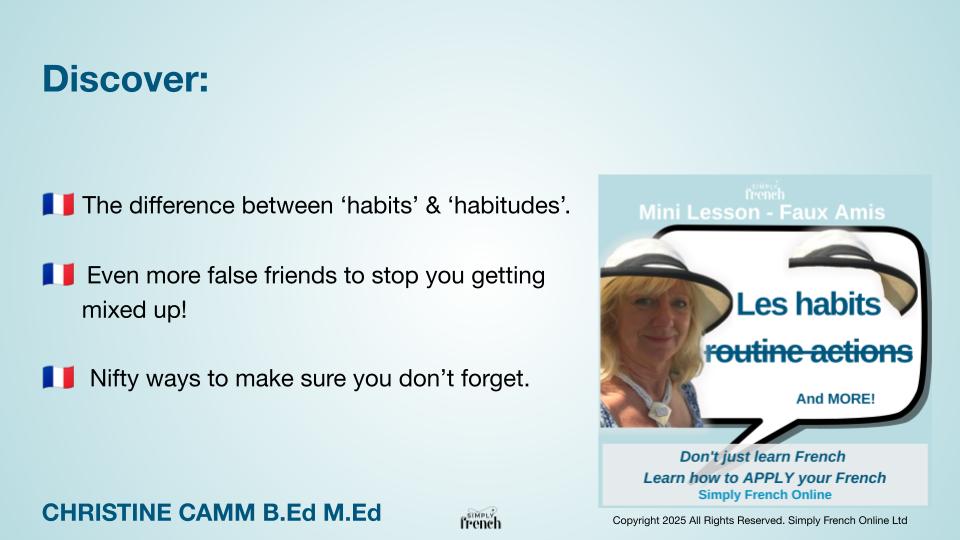
Don’t get fooled by the spelling of the word “habit”!
You may think they mean the same but they are from it:
- une habitude >>> a habit
- un habit >>> an item of clothing
Let’s compare them:
- Tu as l’habitude d’acheter le pain tranché. >>> You’re in the habit of buying sliced bread.
- Elle a de beaux habits. >>> She’s got beautiful clothes.
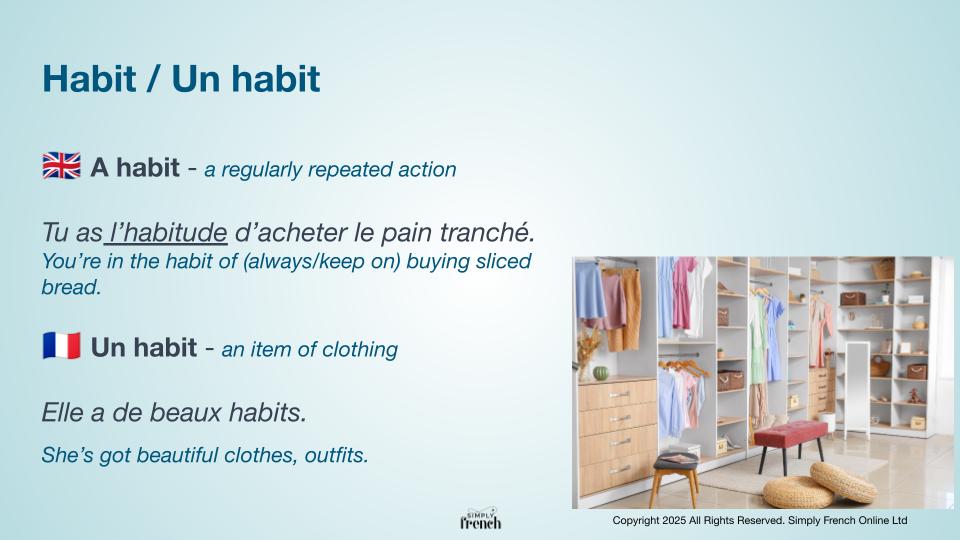
These ones are tricky. Be sure to know the difference:
- se blesser >>> to get injured
- Une injure >>> an insult
Here’s a way to use them:
- Il s’est blessé en marchant. >>> He hurt himself whilst walking.
- ll a été sévèrement réprimandé après avoir insulter un collègue en réunion. >>> He was severely reprimanded after insulting a colleague in the meeting.
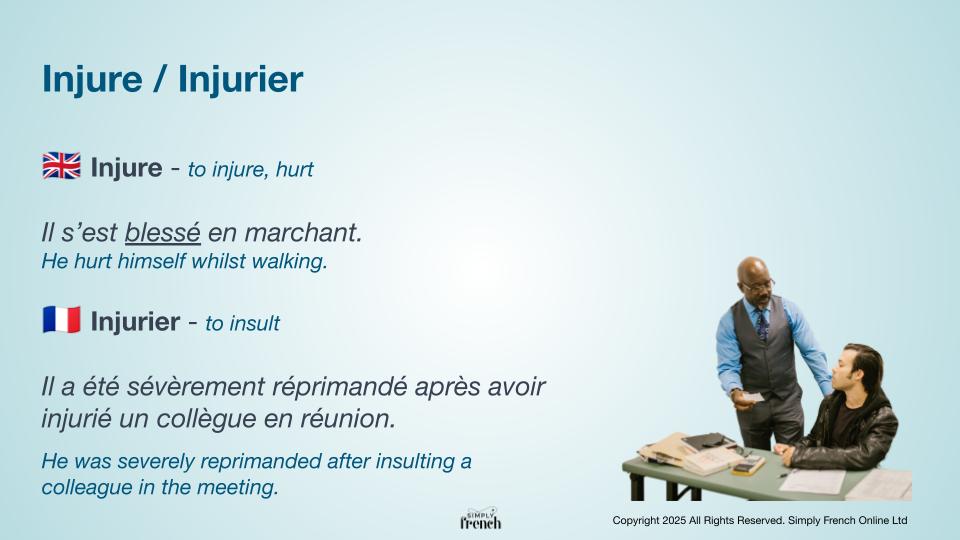
They share some meaning about duration but the context is rather different:
- un voyage >>> a journey
- une journée >>> a day
You can use them like the following:
- Le voyage en Afrique était splendide ! >>> The journey to Africa was great!
- Le voyage a duré toute la journée. >>> The journey lasted all day long.
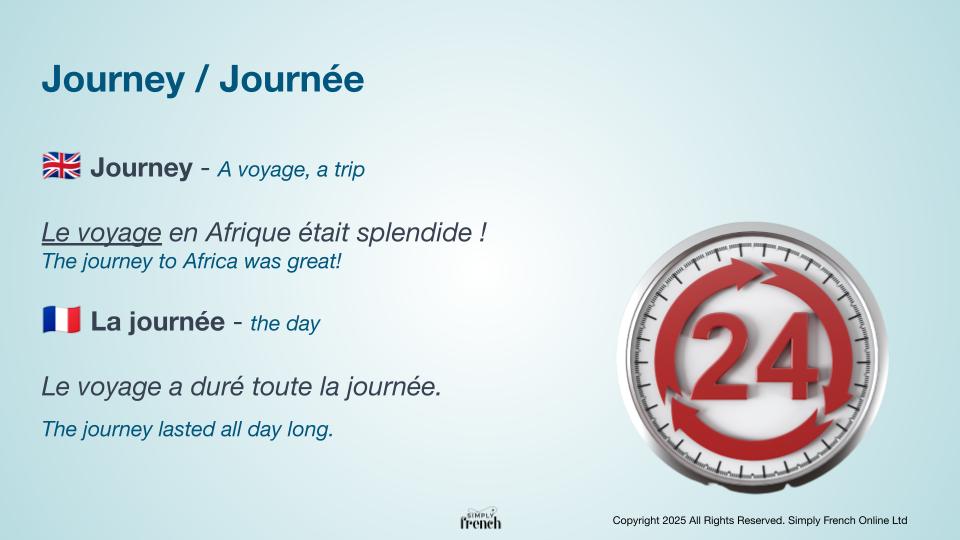
They are in the field of education. However, these two words vary:
- Une conférence >>> a lecture
- Une lecture >>> a reading
Here is how to use them:
- La conférence était difficile à suivre, mais intéressante tout de même. >>> The lecture was difficult to follow, but still interesting.
- Il a fait une lecture passionnante. >>> He did a passionate reading.
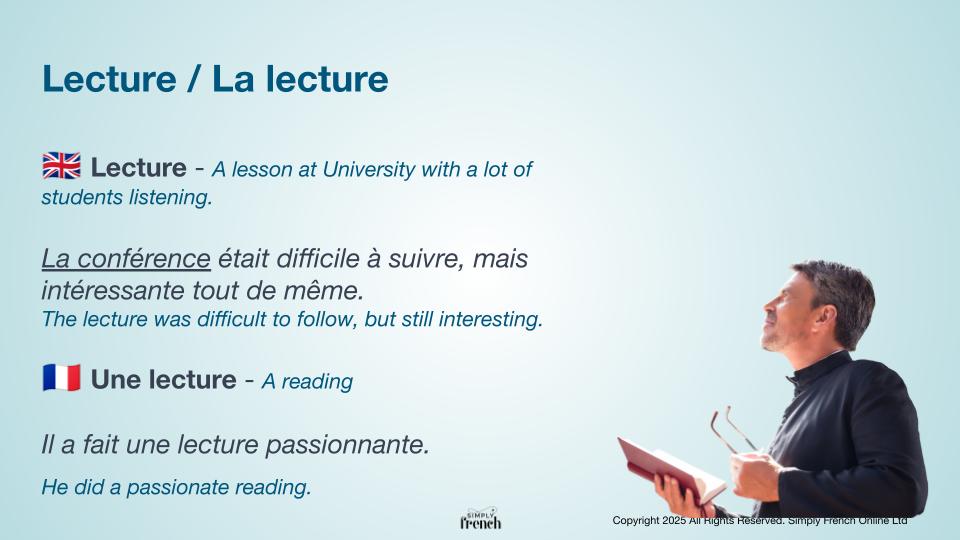
Tips to learn false friends in French.
To start with, choose one thing at a time and master it. Once you do, you can add more to your list.
Then, say it aloud to memorise it.
The word is not enough. Indeed, if you put it into context with your own example it will facilitate.
Then, you want to practise as much as possible or you will forget it.
In a nutshell, there is no need to learn a lot. You would better apply your learning in order to speak French simultaneously with confidence.
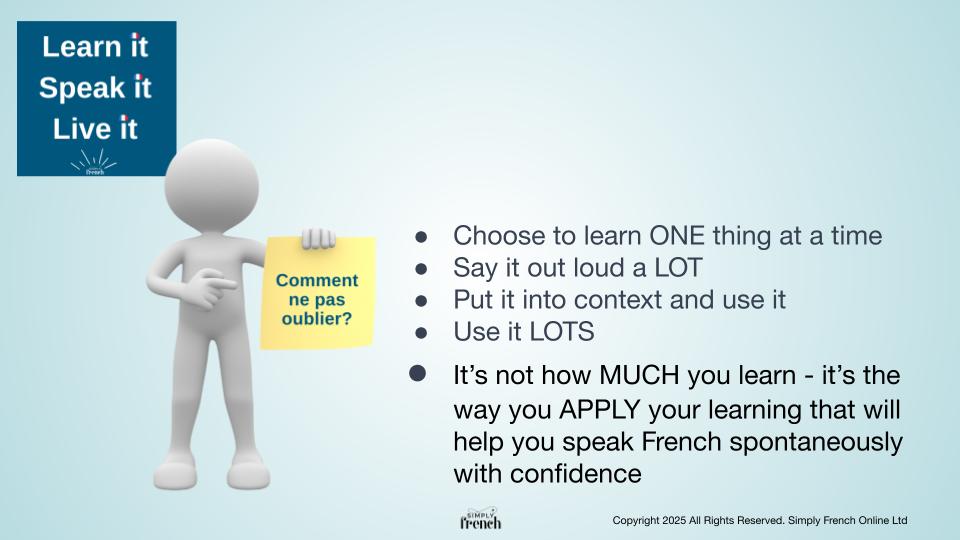
In this mini-lesson, you have covered the following false-friends:
- une habitude >>> a habit vs un habit >>> an item of clothing
- se blesser >>> to get injured vs une injure >>> an insult
- un voyage >>> a journey vs une journée >>> a day
- Une conférence >>> a lecture vs une lecture >>> a reading
Are you interested in learning more about false-friends? You may be interested in this mini-lesson:
What’s the difference between “Brillant” in French and “Brilliant” in English?
What’s the difference between “Engager” in French and “Getting engaged” in English?
Did you know the false friends before this mini-lesson?
Free Masterclass
Learn my 4 step method of how to hold meaningful french conversations the R.E.A.L. way in just 30 minutes a day.
When you signup, we'll be sending you weekly emails with additional free content

